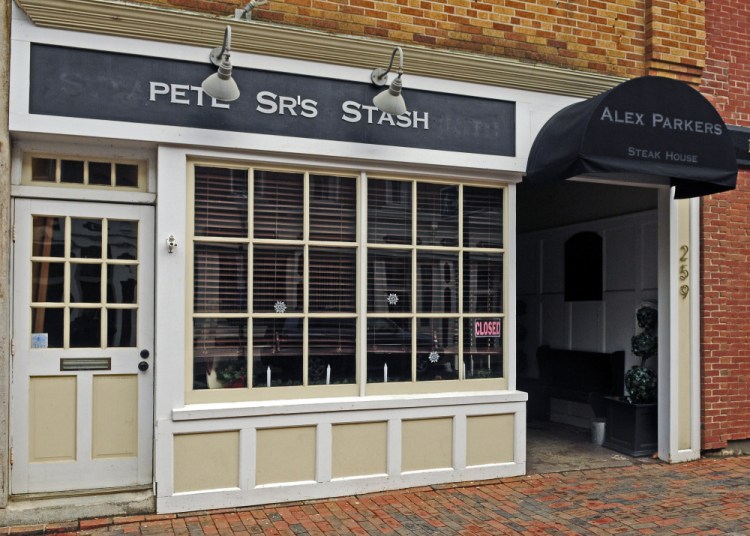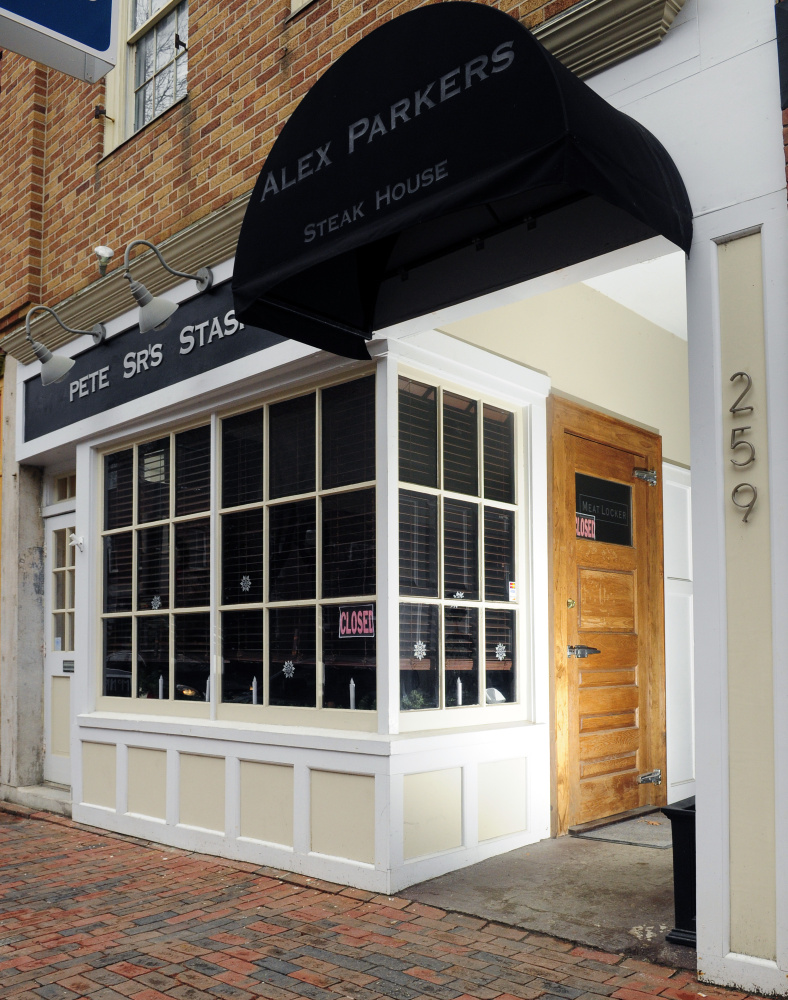GARDINER — A single sheet of paper, dated July 21, 2015, brought an official end to a troubled restaurant that had opened in 2013 to a warm reception and hopes that it would elevate Gardiner’s downtown.
Titled “Discharge Of Debtor,” the document, issued by the U.S. Bankruptcy Court for the District of Maine, wiped clean the slate of debts that Alex Parker’s Inc., Alex Parker’s Steakhouse and Peter Powers had amassed in opening and operating the small restaurant from April 2013 to October 2014 at 259 Water St.
Those debts include money owed to service providers, equipment installers, vendors and the city of Gardiner, which loaned $40,000 to Powers through its revolving loan fund to help pay for the cost of renovating the restaurant space and startup.
The city’s loan file details Powers’ growing reluctance to talk to city officials about the loan’s status and checks that were returned for nonpayment as well as the cancellation of its insurance. This loan also prompted city officials to re-evaluate Gardiner’s loan program. It spotlighted the city’s risk in pursuing this kind of economic development, and made it clear that other loan defaults would leave the city in a difficult place.
“It was the straw that broke the camel’s back,” City Manager Scott Morelli said. “Everyone knows that there’s a chance you won’t be repaid, but this kind of program is inherently risky no mater who runs it.”
Powers, who didn’t return calls seeking comment on the bankruptcy documents, spent time and money renovating the restaurant space and the walkway next to it, connecting Water Street to the Arcade parking lot.
The Chapter 7 bankruptcy cleared a total of nearly $150,000 in debts left behind.
Under a Chapter 7 bankruptcy, a court-appointed trustee or receiver collects and liquidates a debtor’s property to satisfy the claims of the creditors. In this case, according to the file, there wasn’t much to liquidate. Powers’ possessions included a vehicle, some household items and “one good dog.”
Once the debts are discharged, the creditors can’t pursue repayment.
And it ended attempts by vendors such as Brian Ketchen to recover what they were owed.
Ketchen knew as soon as he received the bankruptcy notice that he was unlikely to see any of the $4,600 owed to his company, Dave’s Appliance, of Winthrop, which had installed heating and air conditioning equipment at the Gardiner restaurant.
“I don’t recommend anyone to be at the hearing when the debts are discharged,” he said. “It’s short, sweet and at the end of it, you have no more power sitting in the hearing than you did chasing down the debt six months before.”
The Alex Parker bankruptcy came hard on the heels of the bankruptcy proceedings of another former client that Ketchen had followed, attending the hearings and witnessing the final disposition. The process doesn’t bring a lot of closure, he said.
“For us, it was a lot of money,” he said of the restaurant debt, and it was unsecured. Anyone with a secured debt, such as a mortgage, may get paid first. Unsecured debts, such as the money owed to Dave’s, fall lower on the list.
“We can write off the debt after the fact, but we don’t get any satisfaction,” he said. “We’re not free with credit to others, but we try to be accommodating on credit terms. They chose us as the place to do business, and we extended them the courtesy. We were aware they’d received revolving loan money, and there was no assumption you weren’t going to get paid.”
The bankruptcy also halted efforts by Gardiner city officials who, after months of trying to work out repayment with the restaurant, including an agreement to accept interest-only payments for a period of time, finally resorted to filing a lawsuit to recover what was owed after it settled part of the debt by accepting $15,000 worth of restaurant equipment and selling it for $10,000.
Gardiner will leave that kind of lending to other agencies. Starting in January, the city’s Economic Development Committee will oversee a program that offers lines of credit to established businesses, which may need assistance with seasonal cash flow problems. The Gardiner City Council approved the program in November, allowing funds from the loan program to be reprogrammed for this purpose.
“It would operate much like a home equity line of credit,” said Patrick Wright, Gardiner economic development coordinator. “The idea is that it’s less risky than a loan or capital financing for a startup business.”
Jessica Lowell — 621-5632
Twitter: @JLowellKJ
Send questions/comments to the editors.




Comments are no longer available on this story